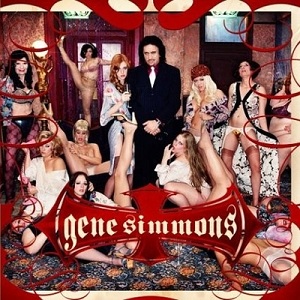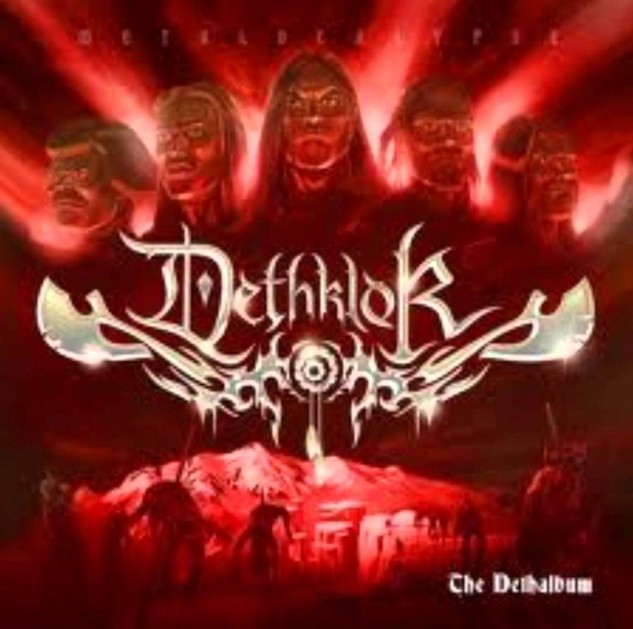 How many tell-all books about KISS do we need? Here’s everything you need to know: Gene and Paul = high-functioning assholes, Peter and Ace = low-functioning assholes. This dynamic anticipates and explains every twist and turn of the KISS story in the past 40 years.
How many tell-all books about KISS do we need? Here’s everything you need to know: Gene and Paul = high-functioning assholes, Peter and Ace = low-functioning assholes. This dynamic anticipates and explains every twist and turn of the KISS story in the past 40 years.
Drilling a bit deeper, you could say that Peter is deeply insecure and has a Napoleon complex, while Ace was/is a skinsuit piloted by various drug monkeys that doesn’t care about anything much except getting high. You could say Paul is deeply insecure and holds fantasies of being an “icon” (a rock god, a sex symbol, whatever), while Gene Simmons is basically after “fuck you” money. So in a sense, you could draw a dividing line orthogonal to the first one. Peter and Paul’s motives are complex. Gene and Ace motives are simple.
Despite his simplicity, Simmons is the most intriguing part of KISS. The man is so naked and undisguised in his greed that he becomes fascinating, and even a bit likable in a perverse way. It’s as if Donald Trump played rock and roll.
This is the worst album I’ve heard all years. It’s the worst album I’ve heard in several years. It is unmarred by a single listenable cut. It’s not even a failure, it’s just…anti-musical. Like something that was never even intended to be good.
What do you think of bands like the Pretty Reckless? If you’re like me, your answer is “not much”, but I wouldn’t dispute that they’re at least trying to write music that you’ll enjoy. There is no way on earth you’re supposed to enjoy Asshole. It was made by a mind filled with contempt and loathing for his audience, someone who wishes he could just reach into your wallet and take money but is limited by law to the next nearest thing. It’s like having Gene Simmons flip you the bird for 40 minutes.
Horrible performances of horrible songs, that’s what’s on offer here. Gene’s voice is shot, he sounds like a 60 year old man doing karaoke. “Sweet and Dirty Love” and “Weapons of Mass Destruction” sound like what old people think heavy metal is – noise and no hooks. The title track features the couplet “you’ve got a personality / Just like a bucket full of pee”…yes, that’s what we’re working with here. “Carnival of Souls” has an unbelievably terrible chorus.
Then there’s a cover of “Firestarter”, a perplexing choice that is ruined by Gene’s flat “your call is important to us” vocal delivery. You know how they used to joke that Arnold Schwarzenegger has an acting range stretching from A almost to B? Gene Simmons is the same, but remove the “acting” part.
And are you ready for the horrible news? The terrifying “Soylent Green is People” revelation?
These are the album’s good songs.
The rest of this CD is packed with terrifying and near-apocalyptic crap that sounds like adult contemporary/soft RnB music. It’s not hard rock, it’s not even soft rock, it’s basically Boyz 2 Men with a bad singer. I couldn’t believe it. I still can’t. It feels like this must be a false memory implanted by the government. Why would the bassist of KISS release an album where at least 50% of the music sounds like a gentle spanish. Then I hear the gentle Spanish guitars and female backup vocals of “If I Had a Gun”, and I realise the nightmare is made of flesh, not dream matter.
Did you know Gene Simmons has a sex tape? Yes, I’ve seen it. No, he doesn’t look any better in his birthday suit. This album sounds like the kind of thing that could have scored it.
 You know that guy at work who can burp the alphabet? And does so at length? That’s what this dipshit’s voice sounds like.
You know that guy at work who can burp the alphabet? And does so at length? That’s what this dipshit’s voice sounds like.
Dethklok is the fictional band on Adult Swim’s animated TV show Metalocalypse. As happens to all fictional bands (Spinal Tap, The Monkees, the Blues Brothers), eventually someone smashed the fourth wall with a Flying V and made them real. Obviously it’s possible to beat a joke into the ground through overuse and thereby make it not funny, except Metalocalypse avoids that problem by not being funny in the first place. I’ve watched a few episodes of the show. What am I missing?
It’s just The Big Bang Theory, except about heavy metal. Shallow, pandering references and cheap namedropping, without any effort at serious analysis or commentary. I remember seeing an episode where they’re at a burger joint called “Burzum’s Burgers”. Lest you miss their writers’ sparkling wit, there’s a metal band called “Burzum,” who’s name sounds a bit like “Burger”. Let me try: Underoath Underwear. Bathory Bathtowels. Great stuff. If only I an aisle to roll around laughing in.
Is there good music on this album? Fuck no! Why would there be good music? This is an album made for people who don’t really listen to heavy metal and have no way to tell good from bad – who only appreciate it as a kind of fashion accessory. It’s just crummy unoriginal dogshit from beginning to end. I hate even thinking about it.
The drums have zero reverb and sound sterile and fake. The guitars have no body, and seem half as loud as everything else, especially Brendon Small’s voice. This is bad news, as he should not be twice as loud as ANYTHING, including the repairman working on the power lines next door and the bird crapping on the roof. Words cannot describe how shit his voice is, how utterly devoid of emotion and intensity.
“Murmaider” merely sounds like Pantera with bad production up until he does that incredibly annoying “Knives, check, rope, check, dagger, check” part. Remember Metallica’s “frantic-tick-tick-tick-tick”? This guy apparently decided that was the future of metal. “Awaken” – tonelessly shouting the song title over and over again, awesome. “Bloodrocuted” actually has two or three good riffs, a stupid chorus, and then they self-consciously switch it out and bring in an equally stupid chorus. “Hatredcopter” got a laugh out of me. “Face-Fisted” is more senseless chugging on an album that conspicuously does not need more senseless chugging.
Even when there’s actual songwriting happening, the weak production and bad vocals just cut everything away at the knees. There’s no sense of brutality or heaviness, everything sounds like a fake plastic-like slab of processed sound. The overall tone is something like Slaughter of the Soul era At the Gates with the guitars turned down 9db at the mixing desk, songwriting c/o a troupe of monkeys, with awful burpy vocals. What a horrible, horrible album. If your imam catches you listening to this in the back streets of Riyadh, you richly deserve beheading.
 Out of the classic Manowar albums (1982 thru 1990), you could make a case for this one being the best, or at least the most consistent. Kings of Metal‘s best moments are better, but it’s worse moments are far worse. I can never get comfortable with that album, despite the greatness of “Hail and Kill” and “Blood of the Kings”. Listening to it side to side is like sleeping on a luxurious hammock that has several large holes in it. There are no Manowar albums with all killer and no filler, so don’t look for them, but there’s a difference between normal crappy and “Pleasure Slave” crappy. On Sign of the Hammer I merely skip a few tracks. On Kings of Metal I actually deleted several mp3s so I can pretend they don’t exist.
Out of the classic Manowar albums (1982 thru 1990), you could make a case for this one being the best, or at least the most consistent. Kings of Metal‘s best moments are better, but it’s worse moments are far worse. I can never get comfortable with that album, despite the greatness of “Hail and Kill” and “Blood of the Kings”. Listening to it side to side is like sleeping on a luxurious hammock that has several large holes in it. There are no Manowar albums with all killer and no filler, so don’t look for them, but there’s a difference between normal crappy and “Pleasure Slave” crappy. On Sign of the Hammer I merely skip a few tracks. On Kings of Metal I actually deleted several mp3s so I can pretend they don’t exist.
Anyway…
1. Shitty songs: “All Men Play on 10” and “Thunderpick”. The first is an annoying Spinal Tappish self-parody – Manowar is at their best when they’re playing with absolute conviction, not winking at the audience. The second is four minutes of unlistenable bass guitar masturbation. Can someone keep Joey DeMaio away from those higher frets? It’s like giving Bashar Al-Assad access to white phosphorous. It’s nothing personal, he just does not use them for the betterment of humanity.
2. Good songs: “Animals” and “The Oath” – really fun high-energy rockers, the first reminding me of KISS, the second a NWOBHM inspired speed metal song. Not much songwriting going on here, just a shot of Manowar’s larger than life energy, like an Epipen in your arm.
3. Great songs: “Thor, the Powerhead” and “Sign of the Hammer.” Holy crap these rule. Elaborate early power metal, rivaling anything done by Manilla Road and Fates Warning. Great vocals, great instrumentation, and great songwriting equals two bona fide classics. If Manowar sounded like this consistently I’d quit making fun of Joey DeMaio’s ego forever, because he’d have earned it.
4. “Mountains”: the standout track and one of the most incredible moments of Manowar’s career. A long-winded ballad that finishes on a massive emotional crest. This is the sort of song you point to when trying to convert someone on a band. Eric Adams has never sounded better than this.
5. The outlier: “Guyana – Cult of the Damned”. An odd doom metal song that I don’t hate, but it doesn’t really do anything to sell me. Some more bass shredding, some heavy doomy riffs, and a bizarre chorus that sounds like the band flailing around in free-time. An odd lyrical choice for Manowar, too. Just a strange, strange song all around.
I’m torn on whether to recommend this as a first Manowar album. One other thing is that Sign of the Hammer opens with terrible cheese while Kings of Metal opens with the great “Wheels of Fire.”
As is always the case with Manowar, you can get a much better album by just deleting all the garbage and dogshit. The trouble is: sometimes this results in a 20 minute long album. Sign of the Hammer fares better, you still get 33:00 or so of good stuff.
 How many tell-all books about KISS do we need? Here’s everything you need to know: Gene and Paul = high-functioning assholes, Peter and Ace = low-functioning assholes. This dynamic anticipates and explains every twist and turn of the KISS story in the past 40 years.
How many tell-all books about KISS do we need? Here’s everything you need to know: Gene and Paul = high-functioning assholes, Peter and Ace = low-functioning assholes. This dynamic anticipates and explains every twist and turn of the KISS story in the past 40 years.

